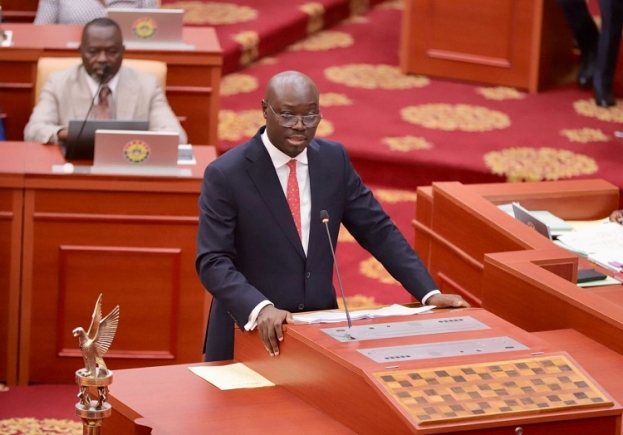
In a landmark decision, Ghana’s Parliament has approved the abolishment of the controversial Electronic Transaction Levy (E-Levy) as part of the 2025 budget statement. The E-Levy, introduced on March 29, 2022, was a tax on electronic transactions aimed at mobilizing revenue for entrepreneurship and national development. However, the anticipated returns from the levy fell short of expectations, leading to widespread public dissatisfaction and calls for its removal.
The announcement to scrap the E-Levy was made by Finance Minister Dr. Cassiel Ato Forson during the presentation of the government’s first budget statement to Parliament on Tuesday, March 11. Alongside the E-Levy, the Minister also confirmed the abolition of the 10% tax on lottery winnings, commonly referred to as the betting tax and other levies such as the Emissions Tax.
In addition, Dr. Forson disclosed that the government plans to review and eventually eliminate the COVID-19 levy as part of a broader effort to streamline the Value Added Tax (VAT) system. These tax reforms are part of the government’s strategy to reduce the financial burden on Ghanaians while fostering economic recovery.
Commitment to Social Protection
Despite these reforms, the government has reiterated its commitment to social protection programs. Increased budgetary allocations have been announced for key initiatives, including the National Health Insurance Scheme (NHIS), the Livelihood Empowerment Against Poverty (LEAP) Programme, the School Feeding Programme, and the Capitation Grant.
Under the LEAP Programme, monthly benefits will be adjusted to account for inflation, and the number of beneficiary households is set to increase from 350,000 to 400,000 by July 2025. Funding for the program will rise by 30.8%, from GH¢728.8 million to GH¢953.5 million. Similarly, the School Feeding Programme will see an increase in the daily feeding allowance per pupil by 33%.
“These interventions reaffirm the government’s commitment to supporting vulnerable groups and ensuring social equity,” Dr. Forson stated during his address to Parliament.
Tackling Economic Challenges
In his address, Dr. Forson also highlighted the government’s efforts to stabilize Ghana’s economy amid ongoing challenges such as currency depreciation, hyperinflation, high taxes, and rising fuel and electricity costs. While acknowledging the severity of these issues, he stressed the importance of national unity and collective effort to address the crisis.
The recent National Economic Dialogue, held for the first time in over a decade, was described as a pivotal moment for Ghana to assess its economic realities and develop a roadmap for recovery.
“This dialogue is an opportunity to reflect on our economic reality, address pressing challenges, and chart a course towards a more prosperous future for all our citizens,” Dr. Forson emphasized.
Cost-Cutting Measures and Fiscal Discipline
Dr. Forson also highlighted President John Dramani Mahama’s resolve to implement cost-cutting measures and promote fiscal discipline. Key actions include reducing the number of government ministers from 123 to 60 and implementing significant budget cuts for the Office of the President. Furthermore, first-class travel for government officials has been prohibited as part of efforts to curtail unnecessary expenditure.
The abolishment of the E-Levy and the introduction of these reforms mark a significant shift in Ghana’s fiscal policy, signalling the government’s commitment to easing the financial burden on citizens while fostering economic stability and growth. The announcement has been met with mixed reactions, with many praising the reforms as a step in the right direction while others remain cautiously optimistic about their implementation and long-term impact.
Story by: Mercy Addai Turkson #ahotoronline.com




